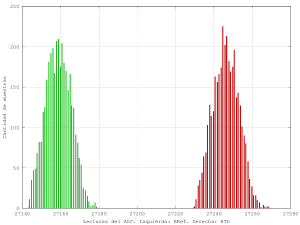… don’t look in my eyes ’cause you’ll see I’m not alright.
But I’m trying.
About a month and half ago I snapped and couldn’t take it anymore. I sought professional help and got myself a Real Shrink and a Therapist (both extremely good and expensive). And I’m on meds now.
For the most part of the last three to four years what I described as “happy” or “fine” was actually different shades of miserable. I had my moments of truly happiness, but those were really few. And there was always that tiny rainy cloud looming above me.
I had a breakdown like this back in 2015 and I almost wanted to give up and get away from programming (I kinda did, I biked many times to the countryside trying to look for a quiet spot).
This time it’s not so bad on its own but compounded with other things happening in my life (one of the biggest is leaving Berisso) it totally wrecked me. The difference now it’s that I asked for help. I still run away from the civilization to take day long bike rides and reflex but I’m trying to get a grip on the problem and fix myself.
Lately I’ve lost interest in most of what my life is/was centered about (technology, engineering) and that bothers me a lot. Not completely, I have many drafts and toy projects that prove otherwise.
The knack it’s there but the thrill is gone. At least for a while.
As Dave Thomas put it, this is supposed to be fun. And it stopped being such for me, instead of an almost daily stream of marvel it gradually turned into a grind with an occasional touch of enjoyment, and not always at work.
I believe that we are defined by what we do (more than what we think / believe), work being a significant part of that. On that reference frame, this is a very tough situation.
So what now? I’m going to spend all the time I need to get better and take care of myself. I’m taking a bit of time off work and going back to uni for real, coming clean of my schedule to not rush things pretending I’m doing something when I’m not (attending lectures and using slack on the phone is awful). I’m saying no instead of hesitating. I’m not committing to do things just to please someone. I take a break when I feel I need it.
I know this stuff (antidepressants) takes time to make effect and it’s not a silver bullet that somehow will make everything fine overnight but I’m anxious, waiting for something to happen.
On a totally unrelated thing, the quote from the beginning is from a Storm Large song (it can be found here). I really miss her days with The Balls, the energy and vocal range from that era reminds me a lot to Skunk Anansie. But her smooth side of nowadays is gorgeous.







